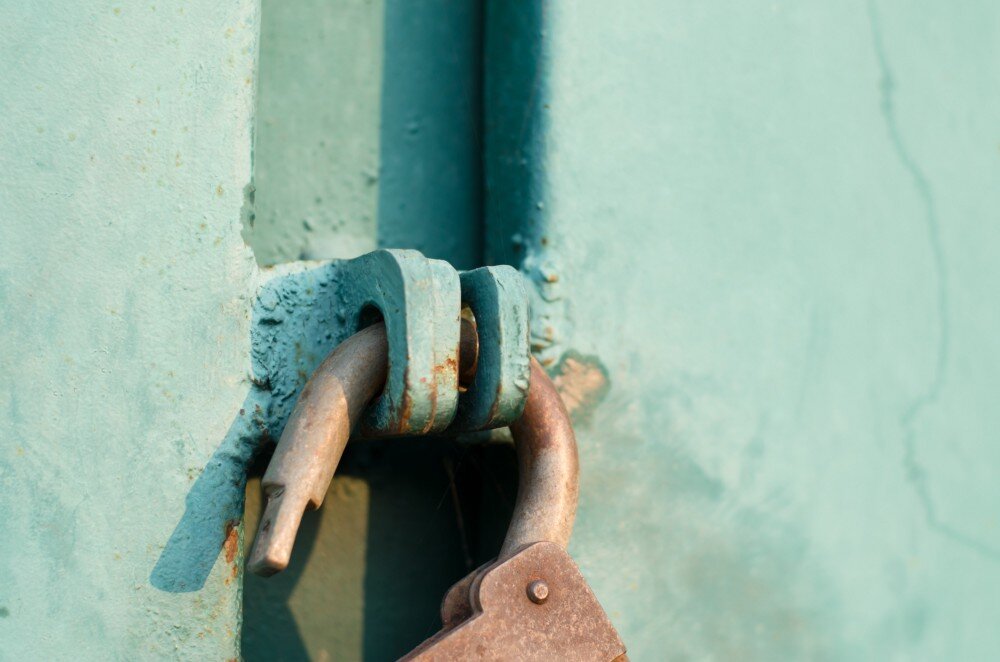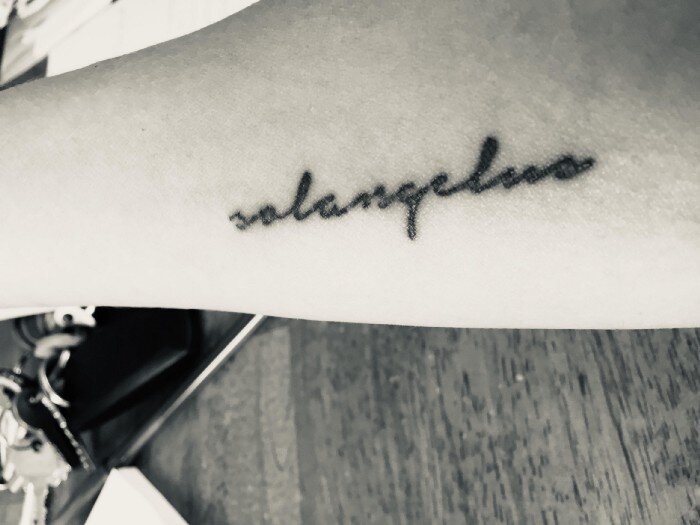Sometimes in life, we must choose between two torments.

“I’m asking you to leave.”
I can barely move my lips — they’re all tremble; this is what happens when you live in a cage — everything atrophies, even the delicate flesh of your mouth. The rusty cell door stands ajar without your knowing it. The key is in your back pocket, and you sit there for years. It’s old witchery — the kind that tricks you into believing days have passed when, in fact, it’s been eons. Like Echo calling out for Narcissus, your voice bounces back to you in infinitum; half of you diminished, and the other half screaming holy hell.
Extricating oneself from a relationship can be excruciating. We are bound to those we’ve loved. Our hearts attach for a myriad of reasons, some mysterious and elusive, others pragmatic. Our cells awaken when we perceive a kindred soul — the first time we hear our lover’s voice on the phone — the scent of their skin on our pillowcase. Time strengthens these bonds and simultaneously reinforces old hurts. Betrayals and negligence happen in minuscule ways. Like a riverbank, love erodes gradually.
How do we trust our motives concerning whether or not to stay or leave a relationship? Suppose we long for more or find ourselves navigating an amplified sense of existential loneliness elicited primarily by our significant other’s proximity; what do we do with our fantasies to flee? Is there value in being tethered to another? In the invisible thread that connects two people — in the dark matter that surrounds them?
Years ago, while working in a psych ward, I observed something I’ll never forget. One afternoon, a male patient in the throes of psychosis became agitated — his volume, posture, gestures, and intent all flashed danger to those in proximity to him. Like a rabid draft horse, he became something to take down, and in turn, a nurse was summoned to inject him with a cocktail of antipsychotics so potent that it reduced him to nothing but shallow, slow breaths and drool. The intervention, known as a chemical restraint, was standard at the time, the last resort, and one (primarily) imposed on the men.
Concurrently I recall a woman. Though more likely, what I’m remembering is multiple women morphed into the one. She, too, was in the throes of despair and desperation. I remember how the interns strapped her to an orange vinyl mattress via a four-point mechanical restraint. How, in her anguish, she would drink the muddy cleaners that she scooped from the janitor’s bucket. How she would gouge at her wrist with a plastic butter knife she’d slipped up her sleeve during lunch in the cafeteria. Thrashing and howling — a wild thing trapped in her heart’s uninhabitable landscape.
What I remember, quite simply, is that we had to protect others from the men and the women from themselves. That the guys were unraveling externally and that the women were imploding — that the psychiatric equivalent of chains had to be employed to mitigate collateral damage when people came unhinged. That human beings severed from a connection (to themselves or another) go rogue. Oblivion is the realm of the loneliest amongst us.
***
Is this why it’s so painful to end a marriage? When we contemplate our relationship’s dissolution, do we find ourselves sitting precariously at death’s precipice? I think so. Our ties to loss (real or imagined) are threefold — evolving from Psychology’s holy trinity: attachment, biology, and evolution.
According to the attachment theorists, such roots reach back in utero. How we have been loved (and unloved) — how we’ve been soothed (and disregarded) lays down a matrix of neural pathways that sets a foundation for years to come. As a result, something seemingly simple, like the tenderness of our mother’s voice or whether or not sorrow had a place in our home, has profound ramifications for how we love.
The core tenant of attachment theory is that we need to experience a secure relationship with at least one primary caregiver for normal social and emotional development. In the absence of this attachment, an aversion to trusting and vulnerability ensues. We become beings who habitually turn towards compromised means of self-regulation — who are predisposed towards exploding or withdrawing. In turn, we are likely to be stumped when called on to assure or comfort an upset spouse, because, without access to self-compassion, a deficit of empathy plagues our interactions and poisons our closest of relationships.
Such behaviors leave a legacy of hurt — a trail of trauma littered with the ghosts of those who dared to love us. Dysfunctional attachment styles and the shame that accompanies them are fertile ground for addiction, depression, displaced rage, trauma-bonding, and learned helplessness; all states that are the antithesis of connection and love and indeed leave us hurting.
But while there’s ample literature and research concerning how secure functioning looks in the context of a stable relationship and the how-tos of healthy partnering, there is a deficit of information concerning what it means to securely function solo while partnered. That emphasizes the importance of maintaining our best selves regardless of our partner’s actions. That guides us in how to handle a partner who continually breaks agreements or chronically betrays. Most importantly, beyond the realm of codependent literature, there is minimal mention of our complicit roll in these dynamics.
When a one-person system dominates our relationship — a pattern lacking in mutuality and reciprocity, what are we to do?
Stan Tatkin, author of We Do, Wired for Love, and Your Brain on Love, makes a compelling case that we must create a shared contract with our partner from the beginning. A document that summarizes and upholds the values and principles by which we wish to govern our relationship. Inherent in this stance is a pact where we agree to align with our mutual values and secure functioning above all else. By aligning with higher beliefs, we align with the greater good, which trickles down to the couple, our children and, even society at large. Tatkin boldly puts forth that failure (of either party) to adhere to agreements is a fireable offense. And that if one person can’t and doesn’t fulfill their share of the agreements (and the other doesn’t enforce them) at all times, then the guiding principles don’t genuinely exist.
The implications are clear: Secure functioning must trump even the relationship sometimes. Some moments force us to choose between the person we love or the principles that guide us. Hopefully, these principles encompass justice, kindness, and humility. Factoring in generosity, as manifested by believing our partner is doing the best they can and sitting with the implications of what it means when the best they offer up is chronically not good enough — which circles us back to acceptance, loss, and ultimately, grief.

Staying long-term in a relationship that does not meet our needs and neglects our core values is masochistic. But prematurely jumping ship is equally destructive. There is a space between commitments and endings, and it’s fraught with unknowables. We can get trapped in limbo-hell, feeling incurably uncertain on how to proceed. We can become steeped in self-righteous indignation, unable to discern our unique role in the deterioration of our partner’s trust. Hanging out in this landscape is critical. Too often, we’re inclined to sever relationships because we cannot tolerate the pain, uncertainty and loneliness inherent in relational crisis. We avoid doing the hard work of addressing our dysfunctional behaviors that contribute to our love’s demise. Such rashness is often an outgrowth of our insecure attachment issues and virtually guarantees we’ll replicate our share of the dysfunction in our next partnership.
When we maintain fidelity to secure functioning and refrain from letting our fears and defenses guide us, it acts as a catalyst for change and sows the seeds for growth and connection. It tethers us to ourselves and, in turn, those closest to us (as well as common humanity). Of course, we hope this will manifest in repairing the bond with our partner, but there are no guarantees in love, so our motives must be clean.

Sometimes, we must choose between two torments — the first being a knowable and predictable pain. One hallmarked by years of gridlock and steeped in negative sentiment. A relationship that has gone sour and is devoid of trust. A partner who is unresponsive to our healthiest selves and continually chooses me over we.
The second sits on the cusp of oblivion (or so we fear). It demands that we let go and surrender. It asks us to trust something more significant than our partner or ourselves — to live our values. It’s all about our risk tolerance, and with either choice, we will incur loss.
That day my lips quivered, and I asked my partner to leave; I knowingly threw myself over a cliff’s ledge. I chose my torment, and it was to run headlong into heartbreak. While it may sound cliche, my trusting in the universe was hard-fought and brutal. I accepted that our love, like everything in life, had a natural cycle replete with seasons. I embraced my mortality, the impermanence of relationships, and, ultimately, my inability to influence their trajectory beyond a certain point. Heaving sobs, I placed my head in my sister’s lap as she stroked my hair, and he packed his bags and cursed me. Secure functioning was my beacon that day — the star that guided me into uncharted waters.
It’s been almost two years, and some nights, I can still see his face at the kitchen door while I’m cooking dinner. I close my eyes, and we are tangoing in the bedroom, partners in crime boarding a plane to LA, making love to Led Zeppelin, getting matching tattoos (yes, really) in Manhattan.
We came full circle, and our relationship changed me for the better (as all relationships can if we allow them). Our chosen name, Solangelus, is still tattooed on my right arm, and I imagine it’s still on his left. There was a period I considered removing it, but instead, I’ve decided to let it fade. After all, that’s what happens to everything in due time; our babies grow old — stars explode, and when I let that fill me to my core, when I really take it in, it seems abundant in mercy and grace
Are you on the fence about whether to stay or leave your marriage? Do you feel you have tried everything but still feel trapped in relationship-limbo-hell? Join me for my Free Webinar, Is My Marriage Worth Saving? I will be offering it on three different dates in the coming weeks and will be available to answer all of your questions, including options for working with me.
